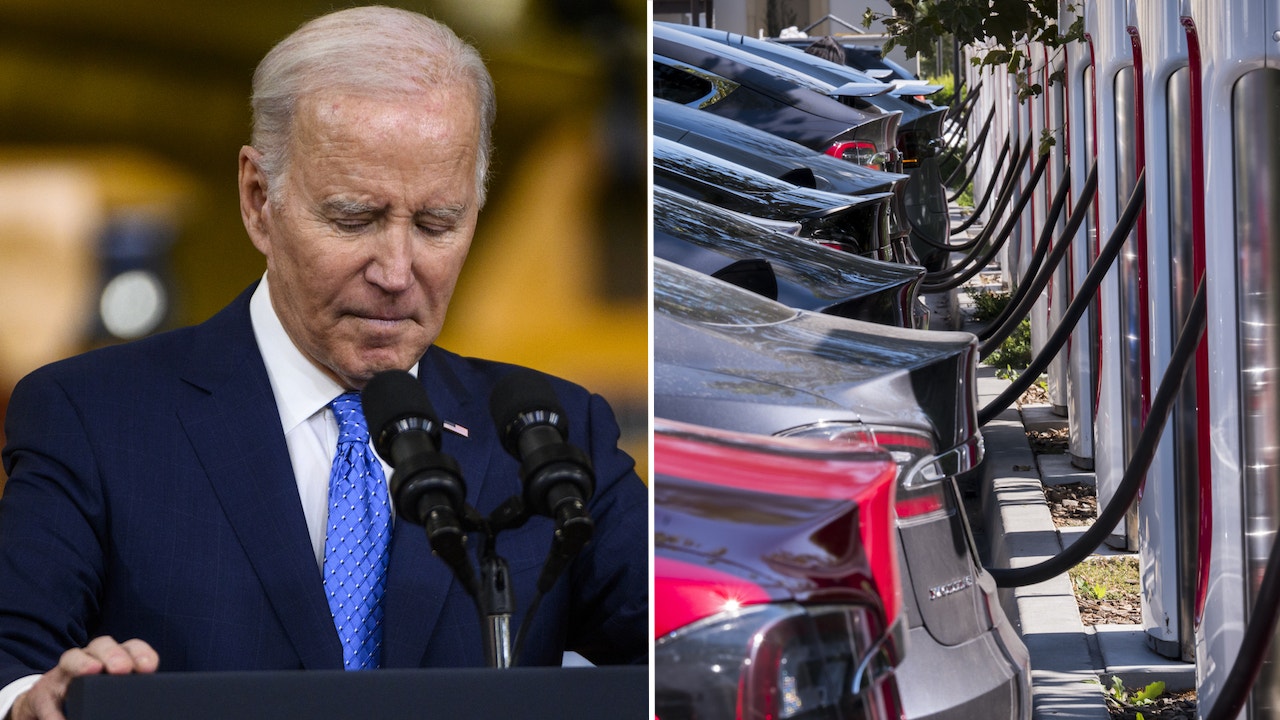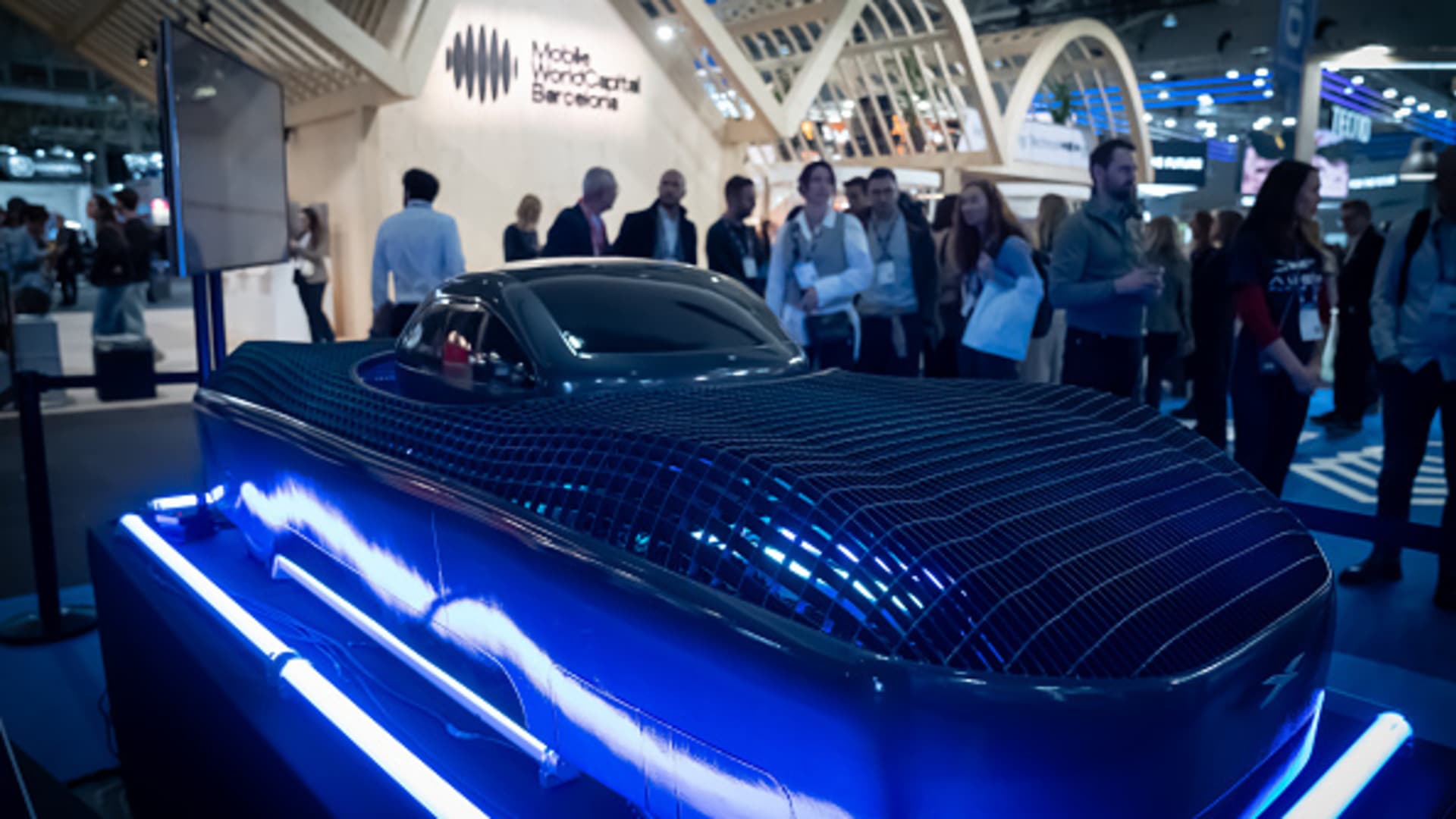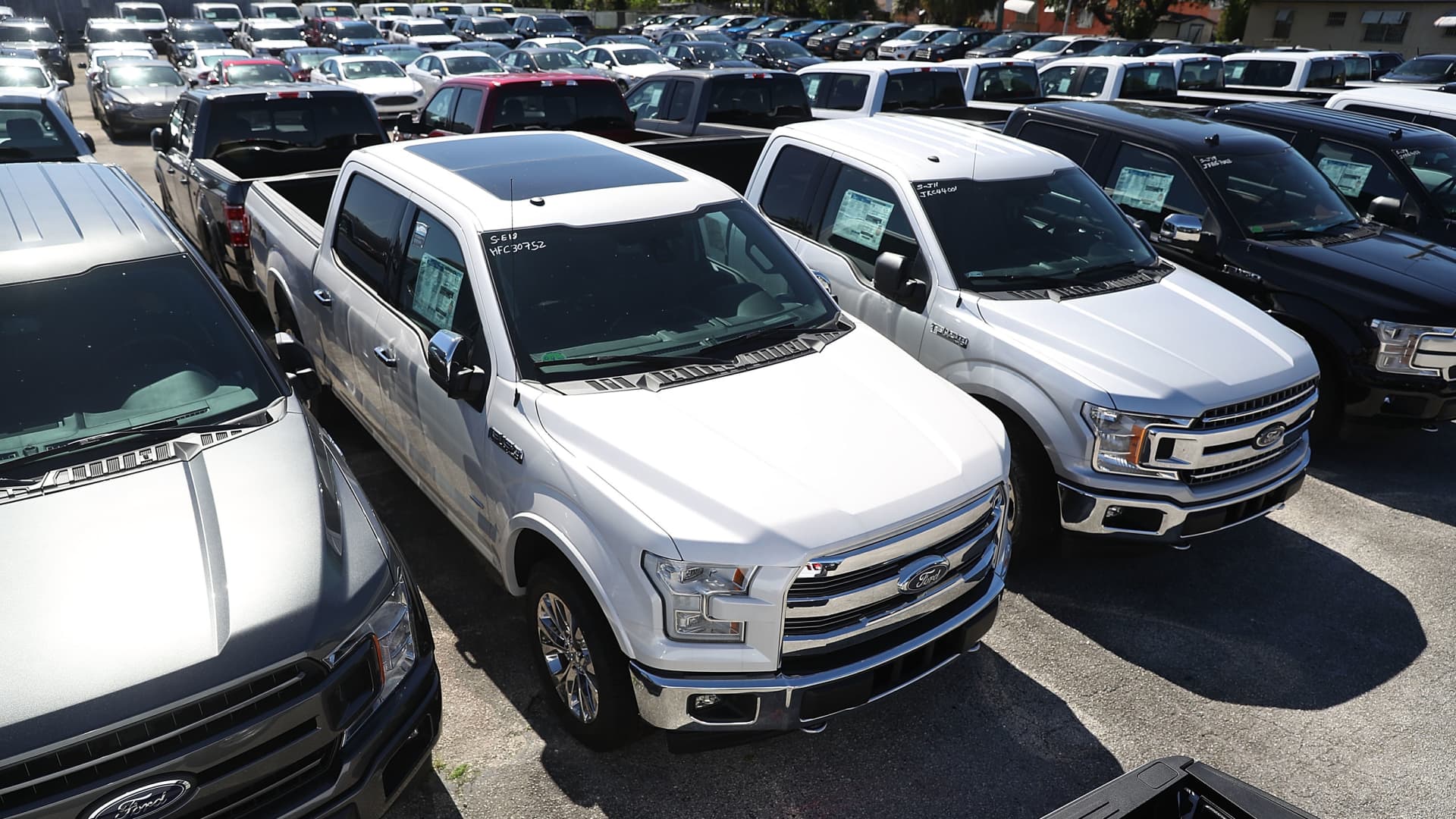BARCELONA, Spain — Alef Aeronautics, a SpaceX-backed flying car firm, says it has reached 2,850 preorders for its futuristic electrical vertical takeoff and landing (eVTOL) vehicle.
Alef Aeronautics, which is based in San Mateo, California, said preorder numbers recently hit a fresh record after previously reporting 2,500 preorders for its two-seater flying car, the Alef Model A.
Customers can access preorders for the Model A online, and to preorder, you have to put down a $150 deposit for the vehicle. Customers can pull the deposit at any time if they want to, so they’re not locked in.
Alef is planning to charge customers $300,000 for the Model A when it becomes commercially available — so on 2,850 preorders, that would give it a combined order value of over $850 million to date.
“As of today we have a little bit more than 2,850 preorders with deposits down, which makes it the best-selling aircraft in history, more than Boeing, Airbus, Joby Aviation, and most of the eVTOLs [electric vertical takeoff and landing vehicles] combined,” Alef’s CEO Jim Dukhovny told CNBC.
At a price of $300,000, Alef is asking its prospective customers to part with a lot of cash. Dukhovny insists the higher price tag is needed as Alef is still a startup and isn’t making any serious money yet.
Alef Aeronautics’ Model A car, which it showed off at Mobile World Congress as a half-size model, resembles an actual car with a mesh shell protecting rotors on the inside that allow air to flow through the vehicle.
David Zorrakino | Europa Press | Getty Images
Alef is separately working on a four-person sedan, though, the Model Z, which is scheduled for launch by 2035 at a price of $35,000, matching that of cheaper-priced electric vehicles.
Alef is one of several startups attempting to make flying cars a reality. Others include Lilium, the Germany-based air taxi startup, as well as Chinese company Joby Aviation. Last year, South Korean telecom firm SKTelecom told CNBC it plans to launch a flying taxi service in partnership with Joby Aviation in 2025.
Alef is backed by the likes early Tesla investor Tim Draper and Elon Musk’s space exploration firm SpaceX.
How does Alef’s car work?
Most of the players on the market currently are building models that resemble a jet and come with wings attached to the sides, or big helicopter-like rotors.
What Alef is going for is a much more different style of vehicle. The company’s Model A car, which it showed off at Mobile World Congress as a half-size model, resembles an actual car with a mesh shell protecting rotors on the inside that allow air to flow through the vehicle.
Dukhovny calls Alef’s vehicle the “first flying car in history.” He says it’s the first because, rather than the massive drone-like designs we’ve seen in vehicles from the likes of Lilium and Joby Aviation, Alef’s looks like an actual car.
“I know that people have claimed the first flying car,” Dukhovny said. “But we always had the idea that it has to be a car, a physical car, a regular car, as you can see it’s an eVTOL, an electric car. a regular car, drive, park, look, everything as a car, and a vertical takeoff.”
Alef’s car is mainly designed to be driven on the road, but will be able to take to the skies, too.
To drive on the road, the car uses four small engines in each of the wheels, and will drive similar to a normal electric car. It has eight propellers in the front and back of the car, which spin independently at different speeds to allow it to fly in any direction.
The Alef Model A has a cruise speed of 110 miles per hour while in the air, while on the road it is limited to between 25 and 35 miles per hour.
Once it lifts off, the Alef Model A can then turn onto its side while the cockpit swivels so that the driver can continue facing forward and the car practically becomes a biplane with the long sides of the vehicles serving as the top and bottom “wings.”
Targeting 2025 launch
The Alef Model A, which weighs 850 pounds, also qualifies as an ultra-light vehicle, meaning it comes under the same legal classification as small electric vehicles like golf carts.
Dukhovny says that should make it easier for the car to pass key regulatory approvals to get the green light to launch flights in 2025.
“If everything goes right, we plan to, and if we have enough funding, if the law is at least not going to be worse, it’s going to be existing as it is, we plan to start production of the first one by the end of 2025.”
Last year, the Federal Aviation Authority granted Alef a special airworthiness certificate, allowing for limited purposes that include exhibition, research, and development of its flying car. Alef still needs to get further approval to pave the way for consumer flights.
However, Dukhovny concedes that, despite the company’s high preorder number, it’s not going to be able to match that demand straight away.
“It’s crazy how to produce 2,850 vehicles,” Alef’s CEO said. “We’re going to start slow. And when people think that’s a million of those that are going to fly over San Francisco or Barcelona, that’s not going to happen. It’s going to be very slow — one, and then more, and then more,” he added.













